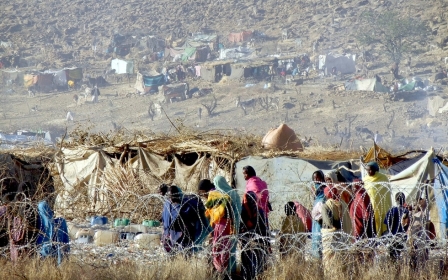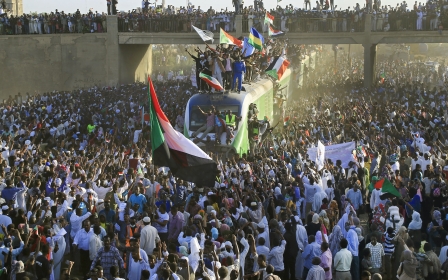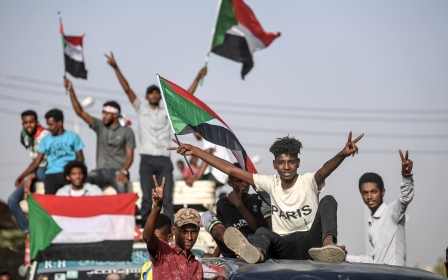Darfur violence blamed on ethnic tensions but suspicions rise over foul play

Images of torched homes and bloody wounds have been flooding in from Sudan’s Darfur region over recent days - though the cause of this recent but familiar violence has been disputed.
Blamed officially on clashes between ethnic groups, many suspect the three days of violence in Western Darfur’s El Geneina is actually the work of forces empowered by now-ousted President Omar al-Bashir.
Dozens have been killed according to leaders of the rival Massalit and Arab communities, potentially forcing Prime Minister Abdalla Hamdok to cancel a scheduled address to the nation and travel to Darfur.
He is likely to be accompanied by Mohamed Hamdan Dagolo, who is also known as Hemeti and heads the Rapid Support Forces militia - infamous for its role in violence in Darfur.
The Forces for Freedom and Change, a coalition of civilian forces assembled during protests organised against Bashir’s role over the past year, accused the former ruling party and its supporters of feeding violence in Darfur to derail the transitional government established under Hamdok.
“This violence and tribal clashes were incited by agents of the old regime,” the FFC’s West Darfur wing said in a statement. “We warn against these attempts to drag the feet of the revolution towards destabilisation and violence.”
Though violence has blighted Darfur since the 2000s, when the UN believes at least 300,000 were killed by pro-Bashir forces, the most recent outbreak has fuelled theories that Bashir loyalists have tried to destabilise the country by stoking communal violence throughout the year in the eastern regions of Port Sudan and Qadarif as well as other parts of Darfur.
The current leader of Bashir’s now-banned National Congress Party, Muhanad al-Sheikh, told Middle East Eye that they had “nothing to do with the tribal clashes”.
“We are very keen to maintain the social coexistence in Sudan, but the FFC leaders want to throw their failures on us in order to cover their failure in leading the country.”
Casualties
The Sudanese Doctors’ Committee, a nationwide coalition of doctors, has said at least five people have been killed. But reports from Darfuri media have suggested the real figure is closer to 40.
Massalit leader Assad Bahr Aldin said at least 30 from his tribe have been killed while Arab community leader Massar Abdul Rahman Essail said that the deaths among his tribe are at least 11 people.
A medical source at El Geneina hospital, who asked for anonymity, also said the number of casualties was higher than that announced by the doctors’ committee on Monday, though they could not confirm the exact number.
“We definitely saw more than five bodies in the hospital,” he said. “We saw horrible things...according to the injures we saw, both sides are actually using various kinds of light weaponry.”
An eyewitness from El Geneina told MEE that the sound of live ammunition could still be heard on Tuesday morning and flames were seen from the area of the Krending displacement camp where the clashes began on Sunday.
Camp resident Nagwa Adam told MEE that Arab militias have blockaded the camp and shot at anyone trying to escape.
“It’s brutal. They brought thousands of armed fighters and blockaded the camp from all directions and burned it,” she said, claiming the clashes began over a small land dispute between members of the two communities.
Another resident of the displacement camp, who did not want to be named, told MEE that thousands have fled over the nearby border with Chad.
Security build-up
El Geneina resident Adam Ahmed, 30, told MEE that army forces from the nearby city of Nyala have arrived and were widely deployed to separate the two communities.
West Darfur authorities announced a curfew on Monday and ordered markets and schools closed.
“Despite all these measures, the situation is tense and people are staying at home. The markets and streets are empty, people are afraid to move,” said Ahmed.
The government has decided to send more forces to the state, according to Mohammed Elfaki, spokesman for the governing Sovereign Council of military and civilian leaders.
Middle East Eye delivers independent and unrivalled coverage and analysis of the Middle East, North Africa and beyond. To learn more about republishing this content and the associated fees, please fill out this form. More about MEE can be found here.




